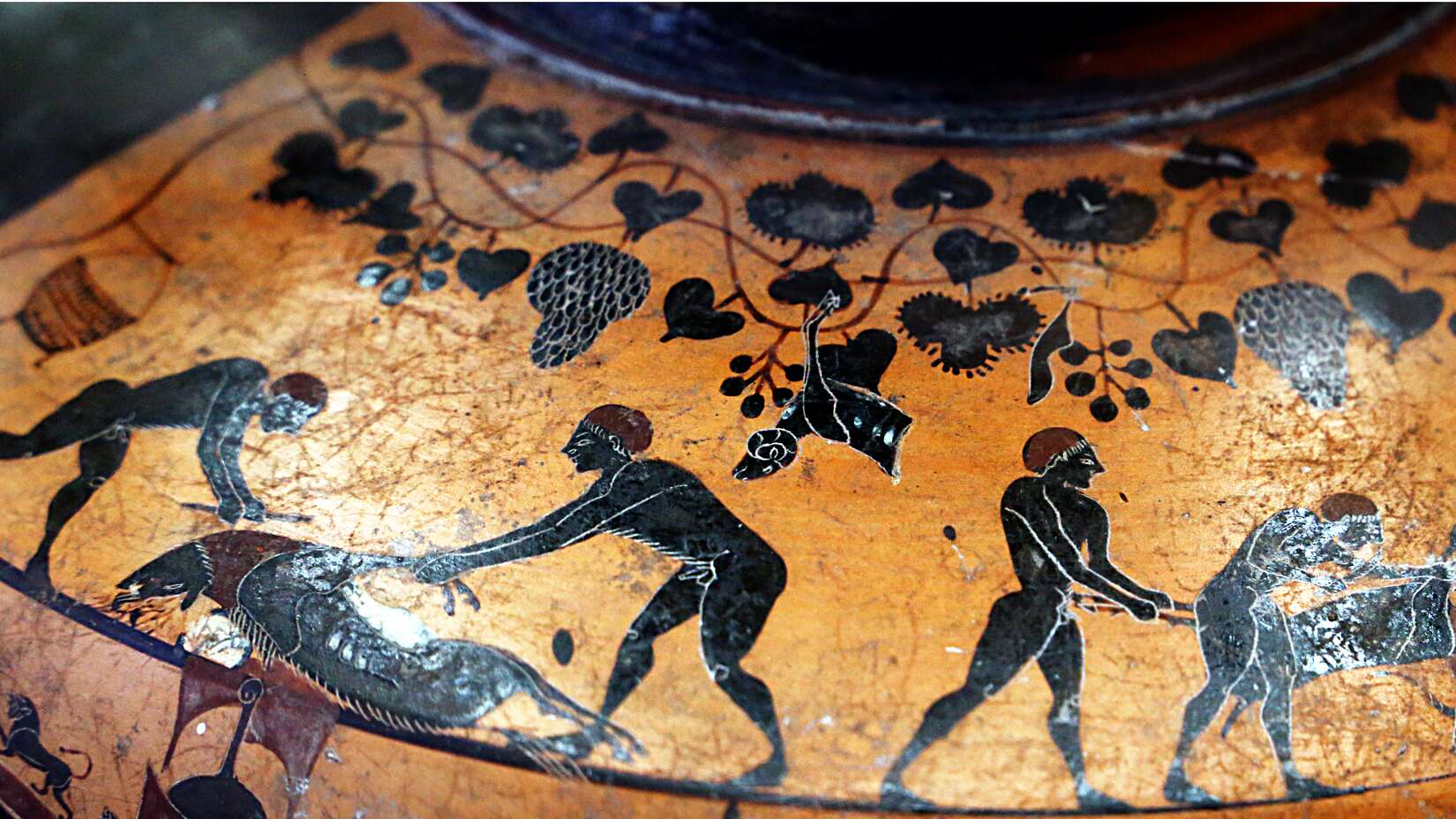

Cecrops, the first king of Athens stands as a peculiar and revered figure in the shadowy dawn of Greek mythology, before the glory of the Parthenon or the wisdom of Socrates. Half man and half serpent, Cecrops was no ordinary ruler. He was a civilizer, a bringer of law, and a reformer of religious rites. Among his many innovations, one stood out as both radical and deeply symbolic. According to the Greek historian Pausanias, he banned the practice of bloody sacrifices, introducing a more refined, symbolic approach to honoring the gods.
According to Greek tradition, Cecrops was autochthonous—born from the earth itself. His lower body was serpentine, symbolizing his deep connection to the land of Attica. In contrast, his upper body was human, representing wisdom and civilization. As the first king of Athens (then called Kekropia after him), Cecrops ruled during a transitional age between chaos and order.
He is credited with numerous foundational advancements that helped shape Athenian society. Cecrops introduced the institution of marriage and monogamy, bringing structure to familial relations. He formulated laws and courts, laying the groundwork for civic order and justice. Cecrops is also said to have divided Attica into twelve districts, encouraging local government and unity among tribes. He instituted burial practices to replace older, more barbaric customs, emphasizing reverence for the dead. Most significantly, he taught the Athenians how to worship the gods properly, helping to harmonize ritual with morality and societal progress.
One of Cecrops’ most humane reforms was his prohibition of bloody sacrifices. Pausanias writes that before his time early forms of worship—much like those seen in other ancient cultures—included not only the slaughter of animals but even of humans in ritualistic offerings to appease or honor the gods. These practices were deeply rooted in fear of daemons. They often served as a way to externalize guilt or seek divine favor through violent means.
Cecrops, seeking a more civilized and moral form of piety, replaced these rites with offerings of cakes, fruits and incense, especially for deities like Athena. In doing so, he did not merely reform the method of sacrifice but marked a profound cultural and spiritual shift. His rejection of human sacrifice foreshadowed later religious movements such as Orphism and Pythagoreanism. Both of these groups upheld the sanctity of life and emphasized purity in worship. They rejected bloodshed and animal killing in favor of symbolic, non-violent offerings.
This change also reflected the transition from a nomadic or pastoral way of life to a settled, urban existence. The offering of bread, fruits, and other agricultural products not only carried symbolic weight but represented the fruits of stable, communal living. We see echoes of this civilizational transformation in ancient traditions, such as the the story of Cain and Abel in the Bible, where Abel offers animal sacrifice and Cain offers fruit—an allegory of evolving modes of worship tied to humanity’s changing relationship with nature and society.
Cecrops viewed these symbolic offerings as more fitting for a rational, law-abiding society. He emphasized devotion through purity and reason rather than blood and fear. His approach was not only spiritual but also political.

Perhaps the most famous myth about Cecrops is the contest between Athena and Poseidon for the patronage of the city. Poseidon struck the ground and produced a salty spring or a horse (sources vary), while Athena offered the olive tree. This offering was a symbol of peace, prosperity and sustainability.
Cecrops judged the contest and declared Athena the winner, establishing her as the patron goddess of Athens. This choice symbolized a preference for wisdom over war, for cultivation over conquest. A decision in harmony with his peaceful religious reforms.

The story of Cecrops reflects the historical transition from prehistoric tribal ritualism to structured urban religion. Cecrops’ replacement of bloody sacrifices with bread marked an early shift toward the ideals that would define classical Athens.
Cecrops thus occupies a vital place in the history of Greek civilization. He was not a conqueror or warlord, but a lawgiver and a moral reformer. He brought divine worship into alignment with human dignity.
